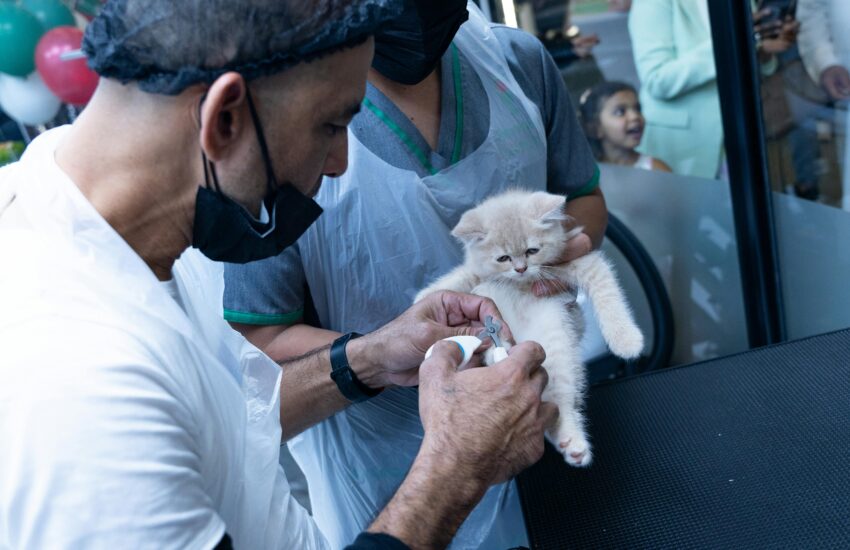Hamster Veterinary Care
Understanding Hamster Health Needs
Just like any other pet, hamsters require regular veterinary care to ensure their health and well-being. The importance of hamster veterinary care cannot be overstated; it plays a crucial role in detecting potential health problems early. Regular check-ups allow vets to monitor common conditions affecting hamsters, such as dental issues, skin problems, and respiratory infections. Owners should be aware of their hamster’s specific needs regarding diet, exercise, and environmental conditions.

Common Health Issues in Hamsters
One of the primary concerns with hamsters is their susceptibility to dental problems. Overgrown teeth can lead to serious health issues, making it essential for owners to provide chew toys and regular veterinary check-ups. Additionally, skin conditions like fungal infections can occur, and timely veterinary attention can prevent these from worsening. Respiratory infections are also common, often caused by poor living conditions or exposure to drafts. Signs of these health issues include lethargy, not eating, or unusual behaviors, warranting a visit to the vet.

The Importance of Regular Check-Ups
Routine veterinary visits are critical in hamster care. During these check-ups, a veterinarian can perform a complete physical examination, which may include checking for signs of disease, measuring weight, and assessing overall body condition. Maintaining a schedule typically allows for preventive health measures that can save the hamster from serious conditions. Owners can discuss feeding, habitat, and care tips that promote the longevity and happiness of their pets.
Choosing the Right Veterinarian for Your Hamster
Finding the right veterinarian is essential to ensure your hamster’s health care needs are met effectively. Not all veterinarians are experienced with small animals like hamsters, so it’s crucial to seek one who specializes in exotic pets or small mammals. Ask about their experience and knowledge in hamster care, and look for reviews or recommendations from fellow hamster owners.
Questions to Ask Your Veterinarian
When selecting a veterinarian, prepare a list of questions to gauge their expertise. Inquire about their experience with hamsters, types of treatments offered, and how they handle emergencies. Additionally, an ideal vet should be willing to educate owners on essential hamster health topics such as dietary needs, exercise expectations, and behaviors that may indicate illness. This will ensure a comprehensive approach to your pet’s well-being.

Emergency Care for Hamsters
Hamsters can experience emergencies that require immediate veterinary care. Knowing what constitutes an emergency will help owners react promptly. Common emergencies include severe bleeding, difficulty breathing, or sudden changes in behavior, such as extreme lethargy or agitation. In major crises, prompt visits to a veterinary emergency clinic can save a hamster’s life.
Preparing for an Emergency Visit
When preparing for a potential emergency visit, keep veterinary contacts saved on your phone for easy access. It’s also advisable to have a small carrier ready for safe transport. If possible, keep notes about your hamster’s recent behavior or any changes noticed, as this information can aid the veterinarian significantly in diagnosing issues. Carry necessary items such as a towel and a favorite toy to comfort your pet during stressful times.
Key Takeaways
- Regular veterinary care is essential for maintaining hamster health.
- Common hamster health issues include dental problems and respiratory infections.
- Choosing a veterinarian experienced with small mammals is crucial for effective care.
- Being prepared for emergencies can save your hamster’s life.
FAQ
1. How often should I take my hamster to the vet?
It’s recommended to take your hamster for a veterinary check-up at least once a year, or more frequently if any health issues arise. Regular visits help ensure the early detection of any potential problems and allow for timely interventions.
2. What vaccinations do hamsters need?
Unlike dogs and cats, hamsters typically do not require vaccinations. However, it’s important to maintain good hygiene, proper nutrition, and monitoring of health conditions to keep your pet healthy. Consulting your veterinarian can also provide specific insights into preventative care.
3. Can I use home remedies for my hamster’s health issues?
While some mild health issues can be managed at home, it’s always best to consult a veterinarian before administering any home remedies. Hamsters can be sensitive to many substances, and incorrect treatments may worsen their condition.
4. How do I know if my hamster is in pain?
Signs of pain in hamsters include changes in behavior such as increased aggression, excessive hiding, and loss of appetite. If you observe any of these signs, it is crucial to consult a veterinarian as soon as possible for appropriate diagnosis and treatment.
5. Are there specific dietary needs for hamsters?
Hamsters require a balanced diet that includes high-quality hamster pellets, fresh vegetables, and occasional treats such as fruits. It’s essential to avoid sugary or fatty foods that can harm their health. Your veterinarian can provide tailored dietary recommendations.
